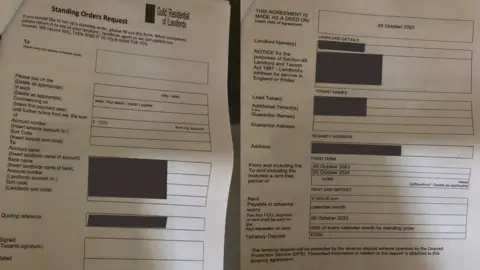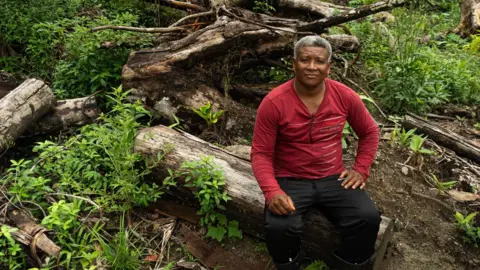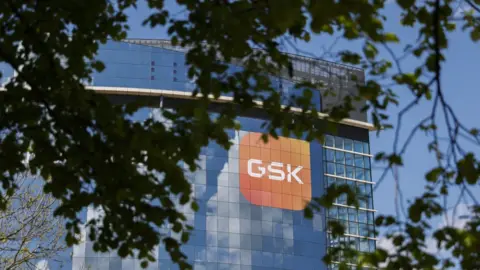Business reporters, BBC News
 Getty Images
Getty ImagesPrime Minister Sir Keir Starmer has said the UK will “keep all options on the table” as US President Donald Trump’s tariffs on imports of steel and aluminium take effect.
The UK exports hundreds of millions of pounds worth of steel to the US per year, which will be subject to the 25% levy.
The EU, facing the same tariffs, said on Wednesday it would impose counter-tariffs on €26bn (£22bn) of US goods, and Canada also responded with countermeasures.
Sir Keir said the UK was taking a “pragmatic” approach and was pushing for a trade deal, but opposition politicians called for a more “robust” response.
When Sir Keir visited the White House last month, trade was high on the agenda, with the PM seeking a trade deal and exemptions to Trump’s tariffs.
Asked at the time if the prime minister had convinced him not to impose trade tariffs on the UK, Trump said “he tried”, adding: “He was working hard, I’ll tell you that. He earned whatever the hell they pay him over there.”
It is understood tariffs were also discussed during a phone call between Sir Keir and Trump on Monday.
However, as the latest tariffs came into effect, there were no exemptions for any country.
European Union President Ursula von der Leyen said the EU’s retaliatory tariffs were “strong but proportionate” and that the EU remains “open to negotiations”.
The EU tariffs will be imposed on “products ranging from boats to bourbon to motorbikes,” the EU said. They will be partially introduced on 1 April and fully in place on 13 April.
Canada will impose C$29.8bn (£16bn) of retaliatory tariffs on US exports from Thursday, Canada’s Finance Minister Dominic LeBlanc said.
Alongside steel and aluminium, the levies will apply to computers, sports equipment, and cast iron products, LeBlanc said.
British metals
Tariffs could lead to US companies buying less from overseas. A knock-on effect could be more cheap steel flooding other markets, including the UK, as trade is redirected, putting additional pressure on domestic producers.
Gareth Stace, director general at industry body UK Steel, said the US move was “hugely disappointing”.
Some steel company contracts have already been cancelled or been put on hold, he said.
Unite general secretary Sharon Graham called on the government to “act decisively” to protect the steel industry.
The Community union called for a UK tax on carbon-intensive steel, produced with a bigger environmental footprint, which would include exports from China and India.
The UK exports a relatively small amount of steel and aluminium to the US, around £700m in total. However the tariffs also cover products made with steel and aluminium, worth much more, about £2.2bn, or about 5% of UK exports to the US last year.
Sir Keir’s comments at Prime Minister’s Questions came in response to Lib Dem leader Sir Ed Davey, who called for the UK to be “more robust” with the US president “like the Europeans and like the Canadians”.
Conservative shadow business secretary Andrew Griffith said Labour “can’t even get themselves in the room” to negotiate with the US”.
Sir Keir said: “We are… negotiating an economic deal which covers and will include tariffs if we succeed, but we will keep all options on the table.”
There have been frequent talks between ministers and US officials since the measures were first proposed in February, the BBC understands.
The UK hasn’t ruled out retaliation in the long term, but that seems unlikely for now.
Trump hopes the tariffs will boost US steel and aluminium production in the longer run, but critics say in the immediate term they will raise prices for US consumers and dent economic growth.
US share prices sank on Monday and Tuesday as traders and analysts expressed recession fears.
The American Iron and Steel Institute (AISI) lobby group said the tariffs would boost US steel manufacturing, create jobs, and close a system of exemptions, exclusions and quotas that allowed foreign producers to avoid tariffs.
Price rise fears
Others in the US do not support the tariffs.
Michael DiMarino runs Linda Tool, a Brooklyn company that makes parts for the aerospace industry, said he was concerned prices for steel would rise.
“If I have higher prices, I pass them on to my customers. They have higher prices, they pass it on to the consumer,” Mr DiMarino said.
The American Automotive Policy Council, a group that represents car giants such Ford, General Motors and Stellantis, said they were concerned tariffs on Canada and Mexico would add significant costs” for car makers’ suppliers.
In 2018, during his first term as president, Trump imposed similar tariffs on metal imports, but carve-outs were eventually negotiated for many countries.
On Tuesday, Trump u-turned on doubling the tariffs on Canada specifically in response to a surcharge Ontario had placed on electricity.
Additional reporting by Michelle Fleury in New York, plus Ben King and Henry Zeffman in London.









